
Wednesday, December 21, 2022
Lead Stories: Fact Check: Doctor Did NOT Say On Video That He Manufactured AIDS As Bio Weapon -- This Is A Soviet-Era Disinformation Hoax
Did an American doctor admit on video that he created the HIV and AIDS viruses in a U.S. military medical laboratory, Fort Detrick, so that they could be used as biological weapons for depopulating the world? No, that's not true: Dr. Robert Gallo, the doctor featured in the video, makes no such admission in the footage, and told Lead Stories that his scientific work was not part of any plan to weaponize HIV/AIDS. Historical records show that the claim is a well-documented hoax that dates to a Soviet disinformation campaign from the 1980s.

Wednesday, December 21, 2022
Maryland Today: $3.8M NIH Grant Funds Expansion of Researcher’s Opioid Use Recovery Approach to Rural Maryland
A University of Maryland psychologist is taking the peer-based opioid use disorder (OUD) treatment model she and her team developed in Baltimore, Md., to the state’s Eastern Shore with the support of a $3.8 million grant from the National Institutes of Health (NIH). The five-year study by psychology Associate Professor Jessica Magidson and Associate Professor Sarah Kattakuzhy, a physician at the Institute of Human Virology at the University of Maryland School of Medicine in Baltimore, is funded by the NIH HEAL Initiative.
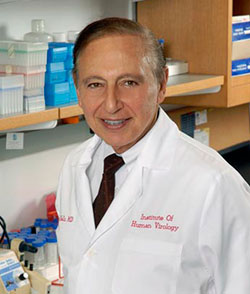
Monday, December 12, 2022
WYPR: Why is it so hard to make a vaccine for HIV? Plus, why RSV infections came early this year.
December is HIV/AIDS Awareness month. How far has treatment and prevention come? Why is there still no vaccine against HIV, when it was possible to develop a vaccine against COVID so quickly? What is it about the human immunodeficiency virus that has thwarted scientists for almost 40 years?
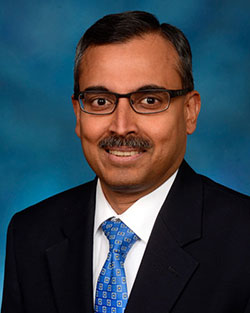
Saturday, December 10, 2022
IDSE: Increasing Vaccination Rates Can Decrease Hepatitis B Virus Rates
Hepatitis B (HepB) vaccination rates remain stubbornly low in the United States, despite new guidelines from the CDC recommending that nearly all people younger than 60 years of age be vaccinated. Raising vaccination rates among adults in the United States is central to bringing down infection rates, as only 30% of this group is vaccinated, according to the Hepatitis B Foundation.
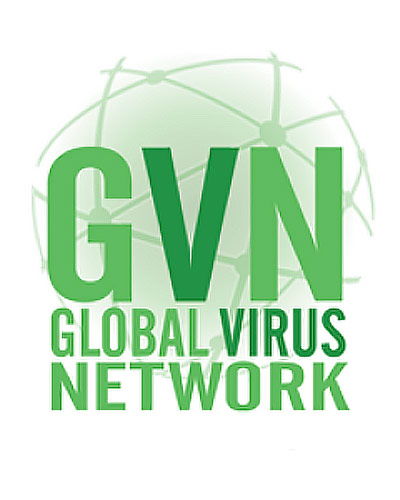
Wednesday, December 07, 2022
Global Virus Network (GVN) Announces 2022 Elected Members of Rising Star Mentorship Program
The eleven awardees will receive training and mentorship to help support and propel their rising careers in virology
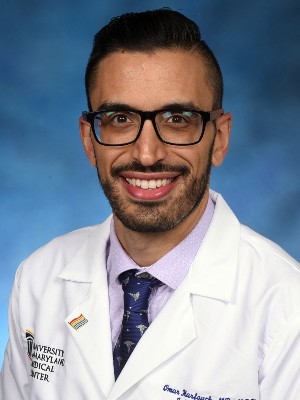
Thursday, December 01, 2022
Everyday Health: 10 Facts About HIV/AIDS Everyone Should Know
A basic understanding of HIV and AIDS can help dispel the myths, erase stigma, prevent virus transmission, and save lives — beginning with your own.
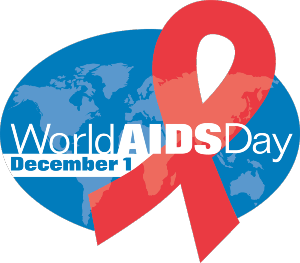
Wednesday, November 30, 2022
World AIDS Day: IHV’s International Leadership in Combatting AIDS
Each year, World AIDS Day is held on December 1 as an opportunity to unite in solidarity for the fight against HIV, honor people living with HIV, and those lost to an HIV/AIDS-related illness. The Institute of Human Virology (IHV), and particular, its Founder and Co-Director Robert C. Gallo, MD, The Homer & Martha Gudelsky Distinguished Professor in Medicine, and its many members have made many contributions and advancements towards preventing, treating, and developing a cure for HIV.
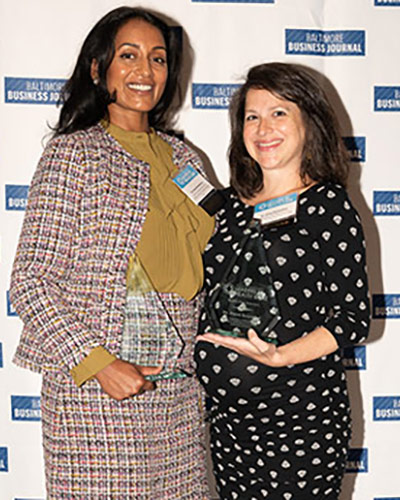
Tuesday, November 01, 2022
Three University of Maryland School of Medicine Faculty Members Honored by Baltimore Business Journal
Three University of Maryland School of Medicine (UMSOM) physician researchers were recognized when the Baltimore Business Journal announced its Leaders in Health Care and 40 Under 40 Award winners.
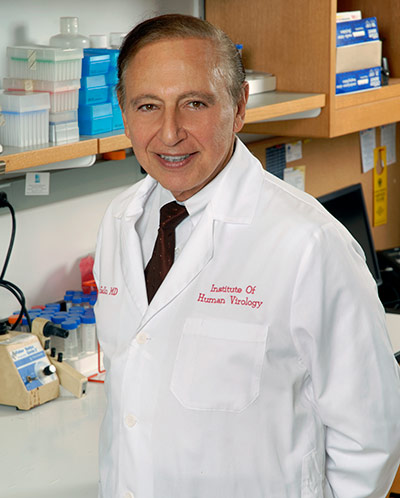
Monday, October 31, 2022
NCI Grants Awarded to IHV to Prevent Cancer and Improve Screening in Sub-Saharan Africa
Institute of Human Virology (IHV) researchers at the University of Maryland School of Medicine (UMSOM) have received two five-year awards from the National Institutes of Health’s National Cancer Institute (NCI) for a total of $7.5 million. One award aims to reduce the incidence of lung cancer and other cancers associated with using tobacco in Botswana. The other is focusing on improving screening and treatment of anal precancer in Nigeria. Both grants will make use of existing HIV treatment and prevention infrastructure in low- and middle-income countries to reach people living with HIV who are most at risk for these particular types of cancers.
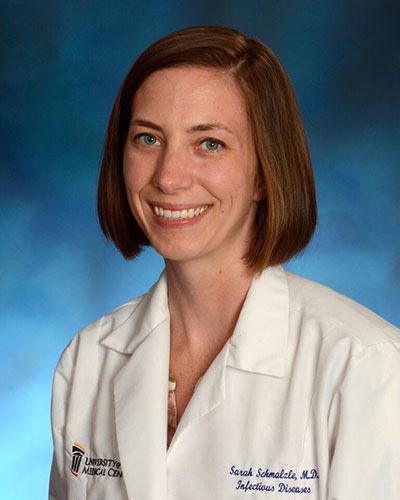
Wednesday, October 26, 2022
Bucknell Magazine: The Bucknell Brigade Prepared Sarah Dickinson Schmalzle ’05 for a Career in Urban Medicine
With her heart set on becoming a doctor, she studied cell biology and biochemistry and minored in philosophy. Then, her interest in social justice ignited through service-learning and advocacy programs at Bucknell — namely the Bucknell Brigade.
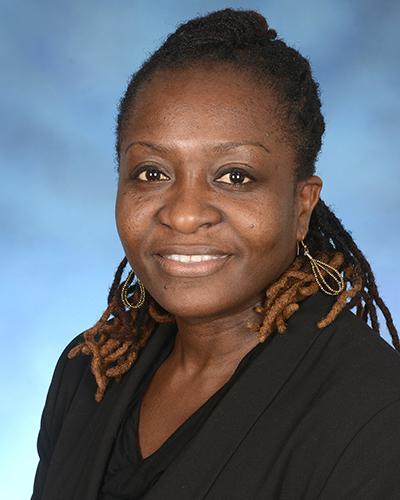
Monday, October 17, 2022
Quartz: The Africa CDC Chief Had Trouble Getting into Germany for the World Health Summit
Attendees from poor countries often struggle to get visas to attend the conferences that discuss their future. The World Health Summit, a World Health Organization (WHO)-backed global health conference, is underway in Berlin, Germany. Ahmed Ogwell Ouma (who goes by Ahmed Ogwell), the acting director of Africa’s Centers for Disease Control and Prevention (Africa CDC), almost didn’t make it to Berlin. At Frankfurt airport, he noted on Twitter, he was “mistreated.. by immigration personnel who imagine I want to stay back illegally.”

Friday, October 07, 2022
Baltimore Business Journal: Leaders in Health Care 2022: Dr. Sarah Kattakuzhy and Dr. Elana Rosenthal, UM School of Medicine
Drs. Sarah Kattakuzhy and Elana Rosenthal were in the early stages of their careers when medications to cure hepatitis C had come to market, and at the same time, the opioid epidemic was exploding. They hadn’t yet met, but they’d each realized the same thing: they were treating patients for infections brought on by injecting opioids, but not getting to the root cause of infection, which was drug use.
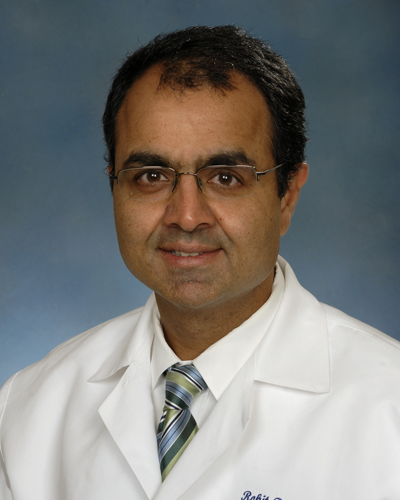
Wednesday, September 28, 2022
TheBody: What Is HIV Remission?
A cure for HIV remains elusive, but one word that is commonly heard is “remission.” Even though it doesn’t mean eradication of the virus, remission is a good thing. But what exactly is remission? Can HIV go into remission? And how does it differ from a cure? Generally, remission means that a disease has stopped being active but hasn’t necessarily been eliminated.
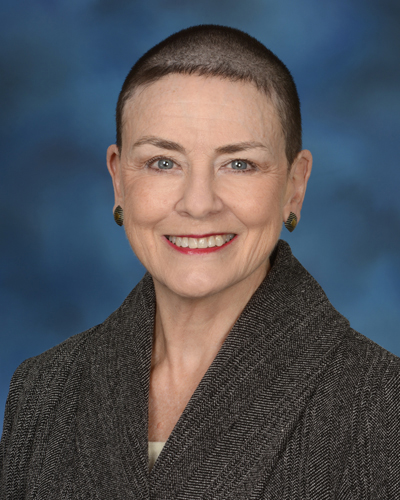
Wednesday, September 21, 2022
Baltimore Fishbowl: ‘AIDS ain’t over’: Supporters look back on 35 years at AIDS Action Baltimore
Six people were honored on Sunday for their support of AIDS Action Baltimore, as it marks its 35th anniversary. More than 150 people gathered at The Belvedere to mark the occasion and pay tribute to the honorees and executive director Lynda Dee.

Monday, September 19, 2022
TheBody: HIV Seroconversion: Timeline, Symptoms, Testing, and Treatment
There are several stages of HIV infection—from the initial exposure to the virus to the development of AIDS—but a lot of important changes happen during the earliest stage: seroconversion. So, exactly what is HIV seroconversion? It is the stage in which the immune system first starts to make antibodies to try to fight HIV after exposure. Once detectable levels of antibodies are produced, this is described as seroconversion.

Monday, September 19, 2022
TheBody: What Are the Chances of Getting HIV from One Exposure?
You had a one-night stand with someone of questionable HIV status. Now the panic begins. Could you have HIV after only one exposure? What are the odds?
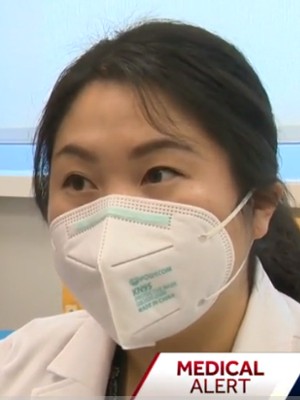
Tuesday, August 23, 2022
WBAL: Anti-viral treatment available in Maryland to treat monkeypox
What do you do if you think you have monkeypox? All 50 U.S. states have reported at least one monkeypox case. Of the more than 15,000 cases nationwide, Maryland accounts for 379 monkeypox infections. Smallpox therapies may be used, although data on their effectiveness for the virus is limited. Vaccines are hard to come by, but there is an anti-viral treatment available.
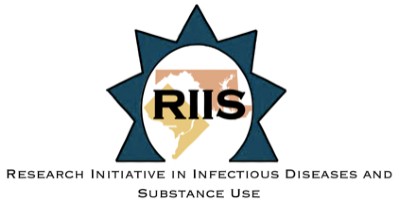
Monday, August 22, 2022
Baltimore Business Journal: Meet the BBJ's 2022 Leaders in Health Care honorees
For the third year in a row, the Baltimore Business Journal is honoring the individuals at the forefront of one of the region's most important industries: health care.

Wednesday, August 17, 2022
Africa Defense Forum: Study: COVID-19 Bigger Risk For Pregnant Women
Pregnant women who catch COVID-19 are in much greater danger than previously suspected, according to a new study that analyzed data collected from six African countries.

Wednesday, August 17, 2022
Popular Science: As COVID vaccines reach kids worldwide, a gap in Africa leaves everyone exposed
Many African countries have fallen behind on delivering COVID shots to kids, despite a higher risk of severe sickness in a massively young population.
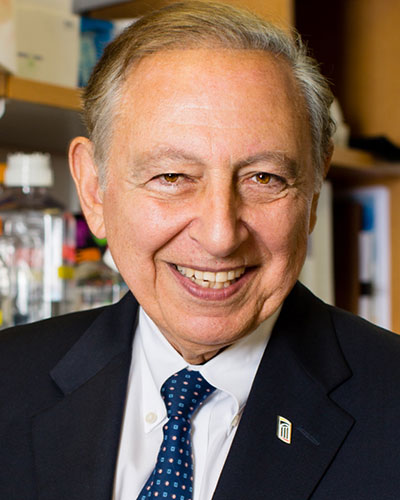
Tuesday, August 09, 2022
CNBC: ‘We don’t even agree on how to define it yet’: It’s year three of the pandemic and scientists still know very little about long COVID
We’ve entered year three of the pandemic, and experts still know very little about long Covid, including how to cure its symptoms. On July 20th and July 21st, the Global Virus Network hosted the first-ever conference devoted solely to the science of long COVID. There, scientists spoke openly about what is known about the mysterious condition and the questions that remain.

Tuesday, August 09, 2022
Medscape: Hepatitis C Virus Reinfection Uncommon Among People Who Inject Drugs
Reinfection rates are low after treating hepatitis C virus in people taking opioid agonist therapy, even among those who still inject drugs, according to a new study. The findings, which are based on prospective data from 13 countries, including the United States, and were published in Annals of Internal Medicine, should encourage physicians to treat HCV in people with a history of injection drug use.
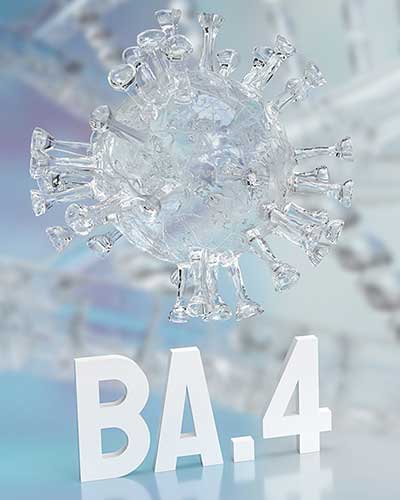
Monday, August 08, 2022
New Study Finds Rapid Decline in Vaccine-Boosted Neutralizing Antibodies Against Omicron Subvariant BA.5
A study led in part by investigators at the University of Maryland School of Medicine’s (UMSOM) Center for Vaccine Development and Global Health found that although COVID-19 booster vaccinations in adults elicit high levels of neutralizing antibodies against the Omicron variant of SARS-CoV-2, those antibody levels decrease substantially within three months. Kirsten E. Lyke, MD, Professor of Medicine at UMSOM and scientist at CVD, is Co-Chair and site Principal Investigator for the study, and Meagan Deming, MD, PhD, Assistant Professor of Medicine at the UMSOM, also a scientist at CVD, is Vice-Chair of the study, which is a collaboration between investigators at the UMSOM’s CVD and the Institute of Human Virology (IHV).

Thursday, August 04, 2022
Baltimore Fishbowl: Marking its 35th anniversary, AIDS Action Baltimore will honor John Waters, Pat Moran, four others
AIDS Action Baltimore will pay tribute to Waters, his friend and film industry colleague Pat Moran, and four others during its 35th Anniversary Commemoration next month at The Belvedere.
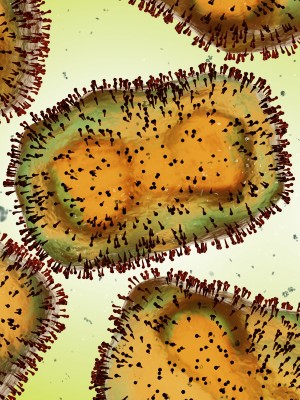
Friday, July 29, 2022
The AM Clique: Breaking Down Monkeypox With Dr. Omar Harfouch
You’re hearing it all over the news so we’re breaking down Monkeypox for you. This morning The AM Clique talked to Dr. Omar Harfouch. He’s telling us everything we need to know to stay safe!

Thursday, July 28, 2022
NBC News: Amid fresh clues about severe hepatitis in kids, researchers ask: Is the phenomenon new at all?
Until recently, a prevailing theory about the severe hepatitis cases popping up in children suggested that an adenovirus was probably to blame. Since April, many young kids with dangerous liver inflammation have tested positive for adenovirus 41, which typically causes coldlike illness or an upset stomach. But two studies released this month, which have not yet been peer-reviewed, outlined another theory: Some children may have been infected with an adeno-associated virus, which uses a second helper virus to replicate.

Monday, July 25, 2022
Institute of Human Virology at the University of Maryland School of Medicine Supports First-of-Its-Kind Conference to Evaluate the Public Health Magnitude of Long COVID And Define A Global Research Roadmap to Address the Crisis
The conference, hosted at the University of Maryland, Baltimore, reviewed the wealth of cohort data on long COVID, constructed a framework to characterize and define the conditions, and identified the most critical and urgent areas of research needed to better understand, diagnose, and treat this developing public health crisis.

Friday, July 22, 2022
STAT: ‘There’s no one long COVID’: Experts struggle to make sense of the continuing mystery
Presented by the Global Virus Network, a coalition of leading virologists, the two-day virtual conference convened at the University of Maryland, Baltimore where experts across disciplines and around the world to ask and answer questions about what causes long COVID, how to predict who gets it, how to treat it, and just possibly how to prevent it.

Tuesday, July 19, 2022
Six-Country African Study Shows COVID-19 Can Be Dangerous in Pregnancy
A new study involving hospitalized women in six African countries from the University of Maryland School of Medicine’s (UMSOM) Institute of Human Virology (IHV) showed that pregnant women with SARS-CoV-2, the virus that causes COVID-19, had double the risk of being admitted to the intensive care unit (ICU) and four-times the risk of dying in-hospital than pregnant women who did not have COVID-19.
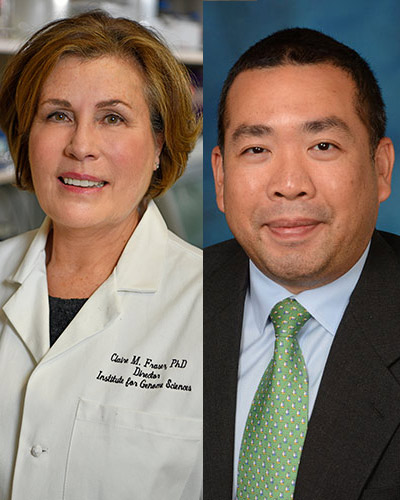
Thursday, June 23, 2022
New Research Shows Mothers’ HIV Status, Breastfeeding, and the Infant Gut Microbiome Can Have Long-Term Impact on Infant Health
Babies born to women with HIV often have poorer health and under-developed growth in the early months of life than infants born to women without the infection — even if those babies don’t contract HIV during birth, according to a new study by researchers at the University of Maryland School of Medicine (UMSOM)’s Institute for Genome Sciences (IGS) and Institute of Human Virology (IHV). The study also provides new insights into why these health issues often continue throughout the babies’ lives.
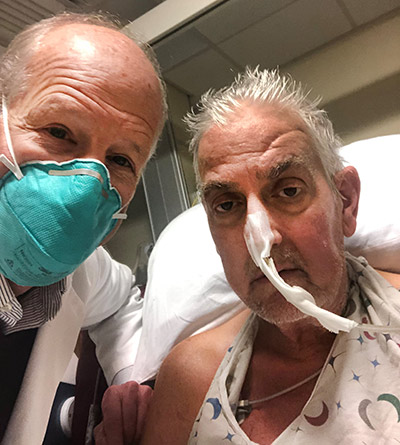
Wednesday, June 22, 2022
University of Maryland School of Medicine Faculty Scientists and Clinicians Publish Findings of World’s First Successful Transplant of Genetically Modified Pig Heart into Human Patient
Six months ago, University of Maryland School of Medicine surgeon-scientists successfully implanted a genetically modified pig heart into a 57 year-old patient with terminal heart disease in a first-of-its-kind surgery. It was considered an early success because the patient lived for two months with a strong functioning heart showing no obvious signs of rejection, according to a new paper published today in the New England Journal of Medicine.
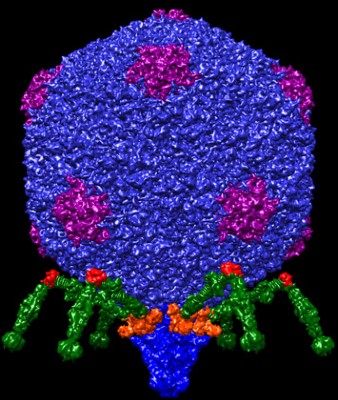
Wednesday, June 01, 2022
Orthopedics This Week: Could A Virus Eradicate Peri-Prosthetic Biofilm Infections?
Could bacteriophage therapy—the practice of using viruses to treat bacterial infections—prove as or more effective than the current standard of care for eradicating biofilm infections? A research team from the University of Maryland looked at that exact question and the results of their study: “Assessment of Staphylococcal Clinical Isolates from Periprosthetic Joint Infections for Potential Bacteriophage Therapy,” has just been published in the April 20, 2022, edition of The Journal of Bone and Joint Surgery.

Tuesday, May 31, 2022
Medscape: Fatigue Affects Cognitive Processing Speed in the Aging HIV Population
Successful aging is something that most of us strive for. But with aging comes a pervasive condition called fatigue that, in many older adults, interferes with everyday functioning, mental health, social support, and overall quality of life. The relationship between fatigue and cognitive and functional impairment is one of particular interest in people living with HIV (PWH), a patient population that is disproportionately affected but whose lifespan now matches that of the general population.

Wednesday, May 25, 2022
NIH Awards Grant to Train Global Health Scientists in Low-and-Middle-Income Countries
Researchers at the University of Maryland School of Medicine (UMSOM) received a $5.5 million award from the National Institute of Health’s Fogarty International Center to help foster the next generation of global health scientists. The award entitled, “Integrated Network of Scholars in Global Health Research Training (INSIGHT)” will expand global health research across sub-Saharan Africa, South Asia, Latin America, and the Caribbean by providing one-year mentored research training to U.S. and lower-middle income country scholars.

Tuesday, May 24, 2022
Endpoints News: Bristol Myers Squibb sues Novartis for royalties surrounding the use of transgenic mice
Two Big Pharma companies are going to the mat over genetically modified mice in a licensing dispute. Bristol Myers Squibb is suing Novartis in New York over a dispute concerning an evaluation, research and commercialization agreement stretching back to the late ’90s initially inked between Novartis and BMS’ predecessor Medarex. The deal in question allowed Novartis to use Medarex’s patented transgenic mice to develop therapeutic drugs. Novartis agreed to pay Medarex – and subsequently BMS – a royalty on sales of drugs it developed using the mice.

Tuesday, May 24, 2022
Baltimore Sun: Monkeypox ‘isn’t COVID,’ but CDC still wants public to be aware of cases
Officials from the U.S. Centers for Disease Control and Prevention warned the public and medical providers Monday to be on alert for possible cases of monkeypox as it counts up to five cases of the normally rare disease around the nation. But the officials say the threat to the general public remains low, as it’s just not as easily spread as other diseases such as COVID-19. Rather, it takes touching or sharing fluids with someone with the characteristic monkeypox rash.

Friday, May 20, 2022
Quartz: The most advanced treatments for monkeypox were developed to address the wrong threat
A few cases of monkeypox have been registered in Europe and North America, far from West and Central Africa where outbreaks typically emerge. With covid still very much ongoing and fresh memories of early 2020, the alert has gone up quickly, lifting the shares of makers of the medications that would be needed to treat a monkeypox outbreak.

Friday, May 20, 2022
NIH Grant Awarded to Study HIV Drug-Resistant Genetic Mutations Across Africa
University of Maryland School of Medicine (UMSOM)’s Institute of Human Virology (IHV) researchers received funding from the National Institutes of Health’s National Institute of Allergy and Infectious Diseases (NIAID) for $2.7 million to study genetic changes in two genes from the HIV-1 virus that may make it resistant to antiretroviral therapy. The study, named INSPIRE, will analyze genetic variation in types of HIV circulating in a handful of African countries that will help to better understand the implications of these mutations and will improve clinical management of patients.
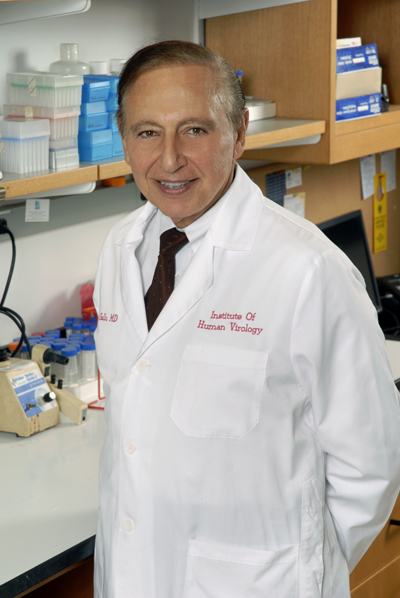
Thursday, May 19, 2022
Baltimore Sun: With COVID cases rising, you’re still not fully vaxxed or boosted? Come on now.
Dan Rodricks: I recently had conversations with a middle-aged man who is extremely careful about what he puts into his body. He eats lots of fruits and vegetables and stays away from red meat and processed foods. He also refuses to get the vaccine against COVID-19, even as infections are on the rise again.

Tuesday, May 10, 2022
Medscape: Decentralizing PrEP Offers a Roadmap for Retention
Good solutions have great roadmaps. For HIV preexposure prophylaxis (PrEP), the road map might just be that of contraceptive care. Once an onerous process, over time contraceptive care exploded into a range of options across a broad landscape in terms of approach and accessibility. How then do organizations help vulnerable patients navigate their PrEP journeys using the contraceptive roadmap as a guide?

Monday, May 09, 2022
Quartz: The cause of the next pandemic is probably already here
A bird flu is spreading again. Several cases of very contagious avian influenza have been identified in the states of Washington, Oregon, Maryland, and Delaware, where over 3 million cases in chickens have been identified since February. At least 80 vultures, too, have died of the disease. Last week, the U.S. Centers for Disease Control and Prevention also reported a case of human avian influenza A(H5) in Colorado, the second associated with the current outbreak of avian flu among birds, which started in 2021. Meanwhile, the first human (a Chinese boy in Henan province) tested positive for H3N8, a strand of avian flu so far known to only infect animals and birds.
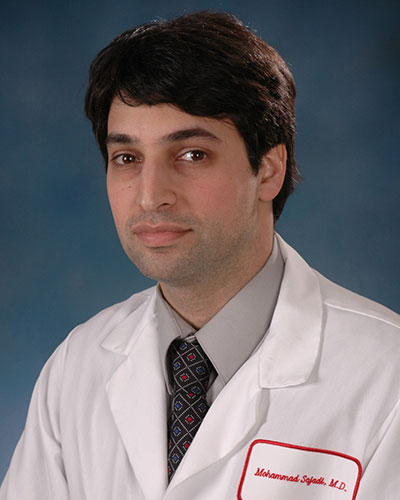
Monday, April 25, 2022
Institute of Human Virology’s Mohammad Sajadi Elected to American Society for Clinical Investigation
The American Society for Clinical Investigation (ASCI) elected Mohammad Sajadi, MD, Professor of Medicine in the Institute of Human Virology (IHV) at the University of Maryland School of Medicine (UMSOM) as a 2022 member.

Tuesday, April 19, 2022
Quartz: Poor countries got screwed on COVID vaccines. They’re making sure it won’t happen again
Since early on, the pandemic has highlighted inequality both on a micro scale—within countries, between social classes and ethnic groups—and a macro one—between rich and poor countries. It also confirmed what many of those working in global health—particularly in and for low- and middle-income countries—expected: In an emergency, no matter the declared values and intention, people will first and foremost, and in many cases only, care about themselves and their own.

Tuesday, April 12, 2022
'Live' Polio Vaccine Fires Up Immune System Providing Protection from SARS-CoV-2 Infection
Two new studies from the Global Virus Network, including the University of Maryland’s Institute of Human Virology and in partnership with the Petroleum Industry Health Organization of Iran, provide evidence that getting the oral polio vaccine made from live, weakened polio-virus may protect people from COVID-19 infection by stimulating the immune system.
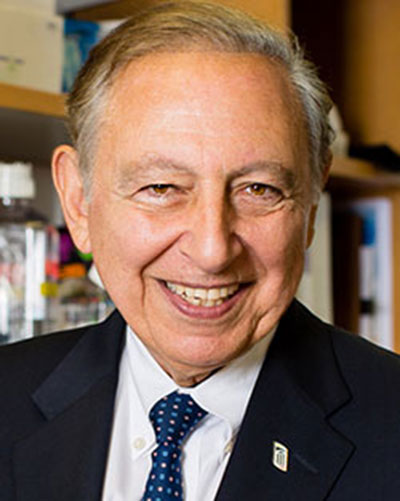
Tuesday, April 05, 2022
UM School Of Medicine Institute of Human Virology’s Robert Gallo Receives Distinguished Alumni Award by the University of Chicago Medical Association
Robert Gallo, MD, The Homer & Martha Gudelsky Distinguished Professor in Medicine, Co-Founder and Director of the Institute Human Virology at the University of Maryland School of Medicine and Co-Founder and Chair of the Scientific Leadership Board of the Global Virus Network, was awarded the Distinguished Alumni Award by the University of Chicago Medical & Biological Sciences Alumni Association (UChicago MBSAA) for his lifetime achievements. Honorees will participate in a panel discussion on May 10 and will be presented the award on May 21 at the Hyde Parke campus.

Friday, March 18, 2022
Deutsche Presse-Agentur: Virus hunt for decades: US researcher Robert Gallo turns 85
Few scientists in the world can come up with as many successes as Robert Gallo: The US researcher was involved in the discovery of the AIDS virus, found leukemia pathogens and other deadly viruses. Now he is 85 - and works even harder than before.

Thursday, March 10, 2022
Healthline: HIV-1 May Be More Virulent When Transmitted Through Penile-Vaginal Intercourse
HIV-1 can be transmitted through vaginal, anal, and oral sex, whether it’s with a same-sex or different-sex partner. But the risk of developing it seems to vary depending on how the disease is transmitted. In fact, the HIV virus may be more virulent when passed between male and female partners who have penile-vaginal sex than among men who have anal sex with other men, according to a new study from the Indian Institute of Science.
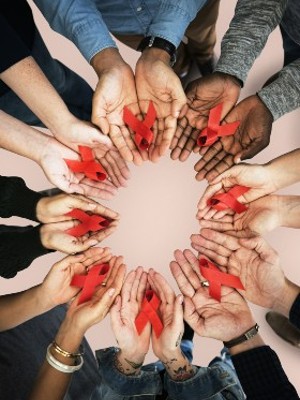
Thursday, March 10, 2022
HIV Plus: One Woman Shares Her Journey of Living with HIV for Over Three Decades
In honoring long-term survivors and National Women and Girls HIV Awareness Day on March 10, I had the opportunity to speak with Ms. Kathy Bennett. She is a 63-year-old Black woman who has been living with HIV for over 31 years. She recently led the longest running HIV support group in Maryland.

Friday, March 04, 2022
The Atlantic: The Pandemic Is Following a Very Predictable and Depressing Pattern
Americans, by and large, are putting the pandemic behind them. Now that Omicron is in the rearview mirror and cases are plummeting, even many of those who have stayed cautious for two full years are spouting narratives about “going back to normal” and “living with COVID-19.” But in the global South, COVID-19 is much harder to ignore. More than a year after the start of the mass-vaccination campaign, nearly 3 billion people are still waiting for their first shot.

Wednesday, March 02, 2022
A Statement from the Global Virus Network on the 2022 Russian Invasion of Ukraine
The Global Virus Network (GVN) is an apolitical global organization comprised of the world’s leading scientists, including those from Russia and Ukraine, who specialize in education and research for the purpose of protecting mankind from viral proliferation and viruses that cause pandemics. The scientists of the Global Virus Network collaborate to alleviate the pain and suffering caused by viral pathogens and to mitigate the threat they pose to mankind.
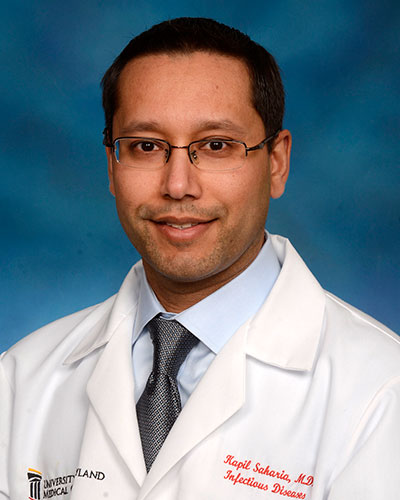
Wednesday, March 02, 2022
Institute of Human Virology’s Infectious Disease Experts Perform Pathogen Surveillance for Unprecedented Pig-to-Human Heart Transplant at University of Maryland Medical Center
The University of Maryland School of Medicine’s Institute of Human Virology, a Global Virus Network (GVN) Center of Excellence, physician researchers played a collaborative role in last month’s successful transplant of a genetically-modified pig heart into a patient with terminal heart disease by creating pathogen surveillance strategies and developing an infection prevention strategy for this unprecedent significant medical advancement.

Wednesday, February 23, 2022
TIME: Knowing the Origins of COVID-19 Won't Change Much
Over two years since the first cases started appearing in Wuhan, China, there is much we don’t know about the origins of SARS-CoV-2, the virus causing COVID-19. But a quick resolution to that question is possible: scientists could find bats in a cave somewhere in China or in southeast Asia and trace a chain leading from those bats to the COVID-19 outbreak in Wuhan. Realistically, however, recent history offers little promise for this to happen quickly.

Wednesday, February 16, 2022
WBAL: Maryland HIV researcher on latest research: It's not a cure
Scientists used a cutting-edge stem cell transplant method to treat a woman's HIV, but a lead researcher in Maryland said it's too soon to celebrate. A U.S. woman is the third known person who is in HIV remission after receiving stem cells from umbilical cord blood, an American research team announced Wednesday.

Tuesday, February 15, 2022
Multi-Country African Research Reports High Rates of COVID-19-Related Deaths Among Hospitalized Children and Adolescents
African children and adolescents hospitalized with COVID-19 experience much higher mortality rates than Europeans or North Americans of the same age, according to a recently published study conducted by researchers from the Institute of Human Virology (IHV) at the University of Maryland School of Medicine (UMSOM) and the Institute of Human Virology Nigeria (IHVN). Both organizations are members of the Global Virus Network (GVN).

Tuesday, February 08, 2022
The New Yorker: Beyond the Booster Shot
Could a “broad spectrum” booster increase our immunity to many pathogens simultaneously? The first tuberculosis vaccine was developed in 1921, by two French scientists, Albert Calmette and Camille Guérin. It was called Bacillus Calmette-Guérin, or B.C.G., and has long been one of the world’s most widely administered shots. From the beginning, its power was surprising. B.C.G. contains a bacterium similar to the one that causes TB, and engenders an immune defense specific to that disease. But, as Calmette noted in a paper in 1931, those vaccinated with B.C.G. at birth were around seventy-five per cent less likely to die in their early years of any cause.
.jpg)
Monday, February 07, 2022
The GW Hatchet: University administers first doses of mRNA HIV vaccine through Moderna partnership
GW was one of the first institutions in the country to administer doses of the first mRNA HIV vaccines to human test subjects late last month. The School of Medicine and Health Sciences and its Vaccine Research Unit collaborated with Moderna to test the safety of the vaccine and the immune responses of two participants in the phase 1 clinical trial.

Sunday, February 06, 2022
Forbes: Double Agents In Global Health
I was once called a 'double agent' because I grew up and trained in India, but now do global health research and teaching in Canada. I think it was meant as a compliment (I hope!) to suggest that someone like me understood global health from both perspectives. Immigrant scientists can serve as dual citizen scientists and give back to their home countries. Here is crowd-sourced input from 19 other double agents.

Friday, February 04, 2022
WYPR: How the COVID pandemic rattled HIV testing
The COVID pandemic did not end the HIV-AIDS epidemic; it may have obscured it for a while, raising hurdles to getting tested for HIV.

Friday, January 28, 2022
The Washington Post: COVID-19 may have seasons for different temperature zones, study suggests
COVID-19 transmission may have seasonal spikes tied to temperature and humidity, increasing at different times of the year for different locations, a new study in the American Journal of Tropical Medicine and Hygiene suggests.
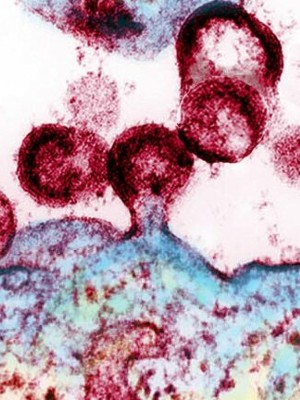
Wednesday, January 26, 2022
STAT: Early research suggests cancer drug could help flush HIV from its hiding spots
In a study published Wednesday in Science Translational Medicine, researchers looked at 32 patients that had both cancer and HIV and found that pembrolizumab, which revives the immune system and encourages it to attack tumors, also has the ability to flush HIV out of its hiding spot in immune cells.

Tuesday, January 25, 2022
Baltimore Sun: Doctors in Maryland see COVID treatments aiding return to more normal life, once the public can get them
The focus is increasingly on preventing hospitalizations and deaths, rather than stopping all COVID-19 infections, by using new therapies.

Monday, January 10, 2022
Yahoo! Finance: Adamis Pharmaceuticals Submits Fast Track Application to FDA for Tempol for the Treatment and Prevention of COVID-19
Although recent oral antiviral drugs have been approved by the FDA, the Company believes that Tempol would provide an unmet medical need because of its unique mechanism of action and safety profile.

Tuesday, January 04, 2022
Economy.bg: What do scientists want for 2022?
Economy.bg asked scientists from Bulgaria and the world what they hope for in 2022.

